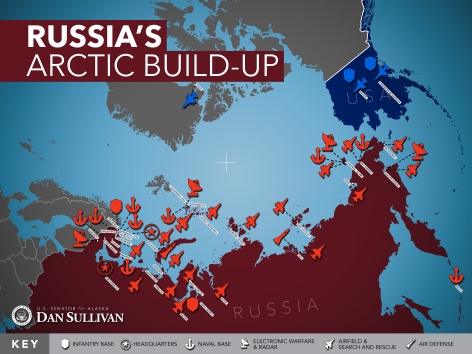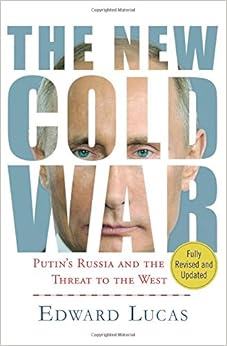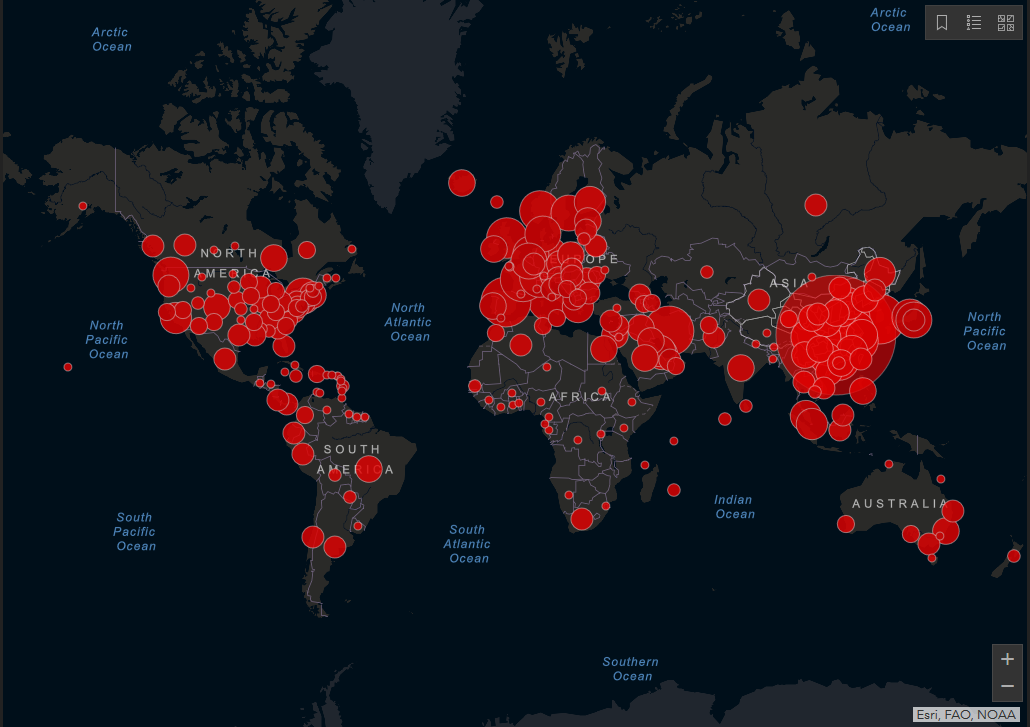- COMMIEVIRUS: Deep State Preparing to Blame Trump for COVID-19 Vax Deaths and Injuries (8-29-22)
- COMMIEVIRUS: Top British Communist Appointed to Lead WHO Advisory Group, During 2021 Interview Insisted Face Masks Needed “Forever” (7-25-22)
- COMMIEVIRUS: Davos “Freezes” Relations with Moscow over Ukraine Invasion, Lenin-Loving WEF Founder Friends with Putin since Early 1990s (3-8-22)
- COMMIEVIRUS: Leftist Think Tank Admits Marxist Influences on Pandemic-Praising WEF Founder Klaus Schwab (12-26-21)
- COMMIEVIRUS: Columbia U. Concludes VAERS Under- reporting COVID-19 Vax Deaths, Real Figure 400,000 AMERICANS DEAD from Big Pharma BIOWEAPON (12-15-21)
- COMMIEVIRUS: Millions of Europeans Protest 22 Months of Lockdowns and Vaccine Mandates, Crickets from Globalist-Run Fakestream News Outlets (11-20-21)
- COMMIEVIRUS: Jordan Peterson: Senior Adviser to Provincial Government in Canada Admits COVID-19 Restrictions Driven by Opinion Polls Not Science (11-18-21)
- COMMIEVIRUS: Bayer Exec: “[T]he mRNA vaccines are an example of cell and gene therapy. If we had surveyed the public two years ago we probably would have had a 95% refusal rate” (11-15-21)
- COMMIEVIRUS: NIAID Chief Tony Fauci Cites Israeli Data, Admits COVID-19 Gene Therapies Waning in Efficacy, Vaxxed Displaying “Breakthrough” Infections (11-12-21)
- COMMIEVIRUS: WEF Founder, “Great Reset” Author, Kissinger Protege Klaus Schwab Offers Courses in Tyranny to COVID Dictators (11-10-21)
- COMMIEVIRUS: California Engineer Michael Anthony Granata Leaves Testimony of Suffering from Moderna “Vaccine,” Hospital Staff Urge Dying Man and Wife to Publicize Story (11-1-21)
- COMMIEVIRUS: Nuclear Cardiologist Scientifically Analyzes COVID-19, Concludes Virus and Vaccines Binary Bioweapon (9-27-21)
- COMMIEVIRUS: International Man Author Doug Casey: COVID Hysteria Turned Canada into East Germany, Moral Character of Americans “Degenerating,” Canadians Worse (21)
- COMMIEVIRUS: CCP Psyop Wildly Successful as Flu Cases in Alberta Plummet from 8,470 in 2019-2020 to ZERO Amid COVID-19 “Pandemic,” Unreliable PCR Tests (3-31-21)
- COMMIEVIRUS: Pro-Beijing World Economic Forum Extols Benefits of Pandemic Lockdowns and Political Oppression for World’s Cities (2-26-21)
- COMMIEVIRUS: List of Deaths and Injuries from (mRNA-Based) COVID-19 Vaccines, First US Recipient Sandra Lindsay Gets Jab on 12-14-20 (1-14-21)
- COMMIEVIRUS: Stanford Researchers: “COVID Lockdowns Have No Clear Benefit vs Other Voluntary Measures” (1-14-21)
- COMMIEVIRUS: Open Letter Urges Western Intel Agencies to Investigate Scientific Fraud Behind CCP-Endorsed Lockdowns (1-10-21)
- COMMIEVIRUS: Communist Party Cells Embedded in Chinese Divisions of Major US Firms Inc. IBM, 3M, PepsiCo and Dow Chemical (12-22-20)
- COMMIEVIRUS: Canadian PM Justin Castro/Trudeau Admits Pandemic Provides Opportunity for Global Economic “Reset” (9-29-20)
- COMMIEVIRUS: Communist China Exports Pandemic Lockdowns by Exaggerating Horrors of Novel Coronavirus via Social Media Campaign, Staged Videos (9-15-20)
- COMMIEVIRUS: The “New Normal” Is Old Communism Imposed under Cover of COVID-19 Eradication (4-28-20)
- JEFF NYQUIST INTER- VIEW: Russia, Red China Planning Strategic Nuke Attack Against USA Amid COVID-19 Pandemic
- JEFF NYQUIST INTER- VIEW: COVID-19 Bio- weapon “Softening Up” USA Prior to Communist Bloc Military Attack
- JEFF NYQUIST ARTICLE: To the US Generals Who Are on Their Knees: Chinese Troops Will Tell You to Stand Up, Hand You Shovels and Force You to Dig Your Graves (6-4-20)
- JEFF NYQUIST ARTICLE: Understanding COVID-19 Pandemic in Light of Sino-Soviet Strategy (3-26-20)
- Top Canadian MD Says COVID-19 a “Bad Flu,” Berates Politicians and Media for Driving “Public Hysteria,” “Greatest Hoax” (11-17-20)
- Port of Seattle Cop Placed on Admin Leave Pending Probe into His YouTube Video Decrying Social Distancing Enforcement (5-12-20)
- Trump Adviser, NIAID Head Dr. Anthony Fauci Backed “Risky” Gain-of-Function Coronavirus Research at Wuhan P4 Lab (4-28-20)
- FT Analyzes Mortality Stats Across 14 Countries During COVID-19 Pandemic, 122K Excess Deaths Revealed, Total Global Death Toll Possibly 318K (4-26-20)
- MD at Mt. Sinai Hospital in NYC: SARS-CoV-2 Attacks Blood System, Caused Strokes in COVID-19 Patients in Their 30s and 40s (4-23-20)
- True North Exposes Sordid Business Links Between Liberal Party of Canada and Communist China (4-22-20)
- NYC ER Doc Richard Levitan: COVID-19 Pneumonia “Hard to Detect,” Causes Form of Oxygen Deprivation Dubbed “Silent Hypoxia” (4-20-20)
- Young COVID-19 Patients Bedeviled by Debilitating Symptoms Two Months after Initial Infection (4-19-20)
- Democrat Governors and Mayors Persecute America’s Christian Majority by Declar- ing Churches “Non-essential” during Pandemic Lockdowns (4-17-20)
- South Korea’s CDC Dep. Dir. Calls SARS-CoV-2 Virus “Very Evil and Shrewd” after 141 “Recovered” Patients Retest Positive (4-16-20)
- Wuhan P4 Lab Suspected of Releasing Novel Coronavirus Receives C$830,000 from Canada’s Trudeau to “Fight” Pandemic (4-15-20)
- Obama Admin Gave Wuhan P4 Lab US$7.1 Million via National Insitutes of Health to Study Bat Coronaviruses (4-11-20)
- Communist-Run Global Times Says PLA “Preparing for Military Struggle” with Taiwan amid Pandemic, Follows Passage of US TAIPEI Act (4-11-20)
- Roger L. Simon: Recognize Taiwan to Punish China for the Novel Coronavirus (4-10-20)
- Pandemic Lockdowns Force 16.78 Million Americans into Unemployment, Vehicle Lineups at Food Banks Stretch for Miles (4-10-20)
- Cardiac Calls to 911 in NYC Quadruple over Same Period Last Year Amid Pandemic, 72% Expire, Home-Based COVID-19 Deaths Suspected (4-8-20)
- Drone Video Shows Inmates Burying Coffins in Mass Grave on New York’s Hart Island as COVID-19 Deaths in NYC Exceed 9/11 (4-8-20)
- Shanghai’s Fudan U. Finds Low Antibody Levels in 30% of “Recovered” COVID-19 Patients, Reinfection Likely, No “Herd Immunity” (4-7-20)
- LA ER Doc Treats “Very Ill” COVID-19 Patients with Zinc and Hydroxychloroquine, Reports 100% Cure Rate, Left Attacks Drug after President Trump Touts It (4-7-20)
- Military Experts Skeptical over Red China’s Claims that People’s Liberation Army Infection Free While COVID-19 Spreads in US Armed Forces (4-6-20)
- Minority of COVID-19 Patients Display Neurological Damage Typical of Radiation Poisoning, Possible Overlap- ping Symptoms from 5G (4-6-20)
- US Army Colonel (ret), Infectious Disease Expert: Deadly Viruses Have Previously “Leaked” Out of Chinese Virology Labs (4-6-20)
- WHO Dir.-Gen. Tedros Ghebreyesus Parrots Beijing Talking Points, Member of Ethiopia’s Ex-Terrorist Tigray People’s Liberation Front (4-3-20)
- Belarusian Dictator Defends Refusal to Impose Pandemic Lockdown, Condemns “Global Actors” Who Manipulate “Coronavirus Psychosis” (4-2-20)
- Texas A&M Biology Prof Compares COVID-19 to Other Respiratory Illnesses Like SARS, MERS and H1N1 (4-2-20)
- US Intel Report to White House Concludes China Underreported Novel Coronavirus Cases and Deaths (4-1-20)
- Prof at Istanbul U. School of Medicine Says COVID-19 “Out of Control” in Turkey, Deaths Will Match Italy and Spain (3-31-20)
- Chinese Nationals Tried to Smuggle Deadly Pathogens into USA since Trump Elected, Vials of MERS and SARS Seized at Detroit Metro Airport, H1N1 in Dallas (3-31-20)
- Epoch Times Estimates 32K COVID-19 Deaths in Wuhan Based on Info Provided by Locals, Bulk Urn Purchases by City Crematoria (3-30-20)
- Scientists Investigate Reports that SARS-CoV-2 Arrived in Italy during Last Quarter of 2019, Virus Undetected for Months (3-27-20)
- COVID-19 Survivors in Wuhan Testing Positive Again for Virus, Igniting Fears of Second Wave of Infections (3-27-20)
- NYC Physician: Young People with No Underlying Health Conditions Seriously Ill from COVID-19 in “Significant Numbers” (3-26-20)
- 50% of Kaiser Permanente’s San Jose Hospital Filled with Confirmed or Suspected COVID-19 Patients, 1st Week Show “Mild” Symptoms, 2nd Week Require ICU (3-25-20)
- Chuck Norris Warns Political Leaders over Pandemic Lockdowns: “Americans Have a Tipping Point” (3-23-20)
- Nine Russian Strategic Airlifters Touch Down at Air Base near Rome as Kremlin Sends 100 NBC Troops and Equipment to “Help” Virus-Stricken Italy (3-23-20)
- Communist Cuba Sends Medical Brigade Consisting of 36 Medics and 15 Nurses to Virus-Hit Region in N. Italy (3-23-20)
- Leading Italian Doctor: Wuhan Pneumonia in Lombardy Last NOV., Long Before World Aware of Outbreak in China (3-23-20)
- Serbian Ambassador to Italy Says COVID-19 Present in Lombardy Last DEC., Weeks Before Red China Admitted Wuhan Outbreak (3-22-20)
- New Orleans Respiratory Therapist: Young, Otherwise Healthy COVID-19 Patients “Become Unresponsive or Go into Respiratory Failure. This Is Not the Flu” (3-22-20)
- Italy’s Ageing Population Contributes to High COVID-19 Death Toll, Nearly 5,500 as of 3-22-20 (3-22-20)
- US Sen. Hawley Calls for “Int’l Investigation” into Communist Party of China’s Role in Suppressing Info about Novel Coronavirus (3-19-20)
- Disaster Looms in Venezuela as Socialist Regime Faces Pandemic with Crippled Health Care System (3-19-20)
- One in Five COVID-19 Hospitalizations in USA Young Adult (Ages 20-44) (3-19-20)
- White House Coronavirus Response Coordinator Alerts Millennials: Young Europeans with COVID-19 Becoming “Very Seriously Ill” (3-19-20)
- The Communist Party of China’s Web of Lies around Origin of SARS-CoV-2 (3-18-20)
- Families of COVID-19 Victims Warn Others of Dangers of New Disease (3-18-20)
- President Trump Defends Use of Term “China Virus,” Denies Denigration of Asian-Americans (3-18-20)
- Belgian Doctor Says Young Coronavirus Patients with No Underlying Health Conditions also “Severely Ill” (3-17-20)
- French Doctors Report 50% of Coronavirus Patients in ICU under 60 Years Old, Dutch Counterparts Report Same Percentage under 50 (3-15-20)
- Senior Red Chinese Diplomat Deflects Attention from PLA Origin of SARS-CoV-2, Accuses US Army of Creating Coronavirus (3-12-20)
- Fatality Rates for COVID-19 “Vary Wildly” Depending on Age, Gender, Medical History and Country (3-9-20)
- Communist Officials Order Chaoyang City Health Commission to Destroy Docs Related to Novel Coronavirus Outbreak (3-2-20)
- Wuhan Funeral Homes Report “Sharp” Increase in Cremations amid Coronavirus Outbreak, Communist Party Underreporting Deaths (2-7-20)
EXPORTING CUBAN COMMUNISM
- Spain’s El Mundo: Maduro’s Special Action Forces Terrorize Venezuelans Opposed to Socialism, Murder “Thousands” Since 2017 (8-1-19)
- Cuban DI/G2 Officers in Nicaragua after Sandinistas Returned to Power in 2007, Ortega’s Interior Minister Employs 200 Such “Advisers” since April 2018 Uprising (6-3-19)
- El Salvador’s AG Orders Raid on Alba Petroleos, Money Laundering Probe Implicates Venezuela’s PDVSA and Nicaragua’s Albanisa, All Three Companies under US Sanctions (6-2-19)
- US National Security Adviser John Bolton Alleges 20-25,000 Cuban Security Forces in Venezuela to Bolster Maduro Regime (5-1-19)
- Cubazuela: Report Exposes Havana’s Control over Venezuelan Military, Security and Intelligence Agencies (4-19)
- Cuban FM Rejects Pres. Trump’s Claim that Havana Has “Private Army” in Venezuela but Website Names Cuban Officers Deployed to S. American Country with 4,500 Infantrymen (2-20-19)
- Nicaraguan Student Activists at Miami Press Conference: Cuban and Venezuelan Agents Involved in Torture of Pres. Ortega’s Opponents (7-13-18)
- OAS Secretary General Luis Almagro in Testimony before US Senate States Cuba Maintains “Occupation” Army of 15,000 Troops in Venezuela (7-20-17)
- Venezuelan Opposition Lawmaker Brands Members of Bolivarian Alliance for the Peoples of Our America (ALBA) “Vassal States” of Cuba (Spanish; 4-14-17)
- Vice Minister of Cuban Military Gen. Joaquín Quintas Supervises Venezuelan Exercise Simulating US Invasion, Zamora 200 Mobilizes 76,000 Soldiers Plus Civilians (1-16-17)
- Cuba’s Top General Leopoldo Cintra Frias Leads Delegation to Syria in Support of Dictator Bashar al-Assad, Cuban Troops to Reportedly Man Russian Tanks against ISIS (10-15-15)
- Maduro’s Interior Minister Denies Cuban Special Forces in Venezuela, Pics Posted to Social Media Allegedly Show “Black Wasps” Disembarking from Transport Plane (2-23-14)




>Not a big surprise here. I remember back when there was a crisis brewing between "post"-Communist Romania and Moldova, the Romanian government was accused of backing pro-Romanian Moldovians.More likely, the entire event was controlled by the secret police of the two "former" Soviet Republics. Even open law enforcement in Moldova did little to stop the riots, as if they were being told to do so.